Anxiety in dogs is more common than many pet owners realize. It can manifest in various forms, including separation anxiety, fear of loud noises, or general anxiety that causes your dog to feel stressed and uneasy. Fortunately, there are several effective strategies you can employ to help your dog overcome anxiety and lead a happier, more relaxed life.
1. Create a Safe Space
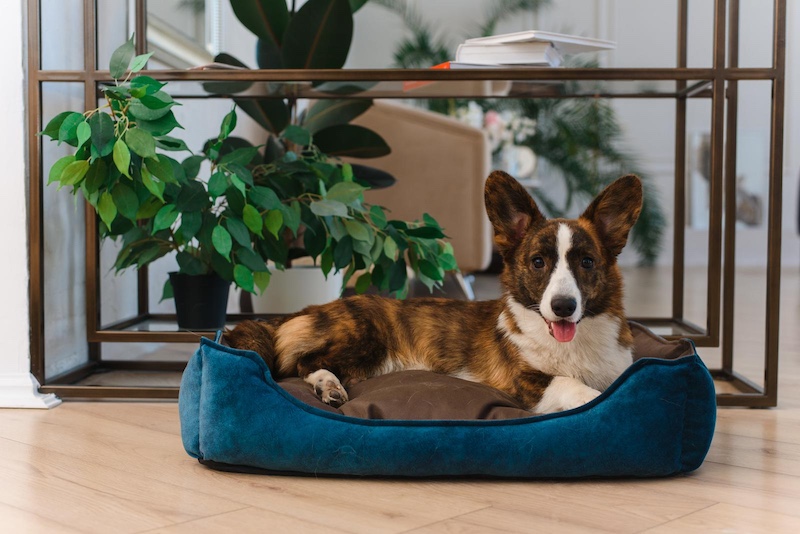
Every dog needs a place where they can retreat and feel safe. This could be a specific room, a crate, or a cozy corner with their favorite bed. The key is to make this space comfortable and quiet, away from any potential stressors. If your dog is crate-trained, the crate can serve as a den-like safe space. Add a few toys and a blanket to make it even more inviting.
2. Establish a Routine
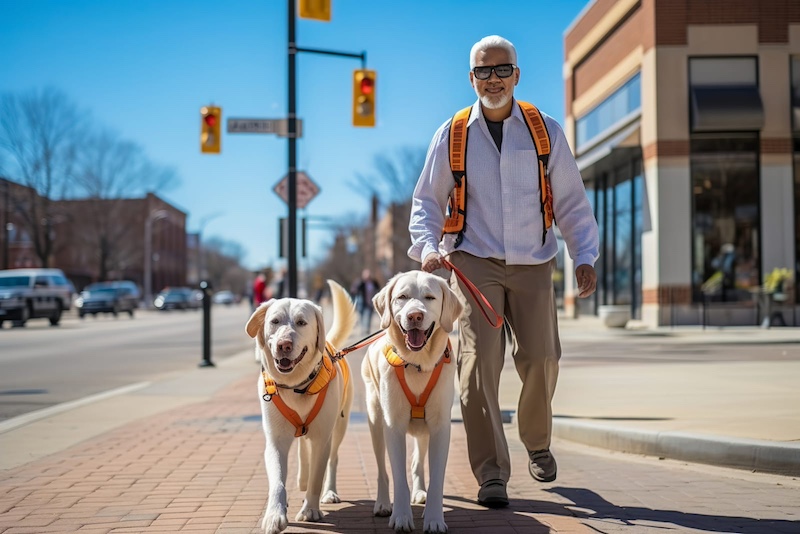
Dogs thrive on routine. Having a predictable daily schedule for feeding, walking, playtime, and bedtime can help reduce anxiety. When your dog knows what to expect and when, it can alleviate stress caused by uncertainty. Try to keep your routine consistent, even on weekends, to provide your dog with a sense of security.
3. Exercise Regularly
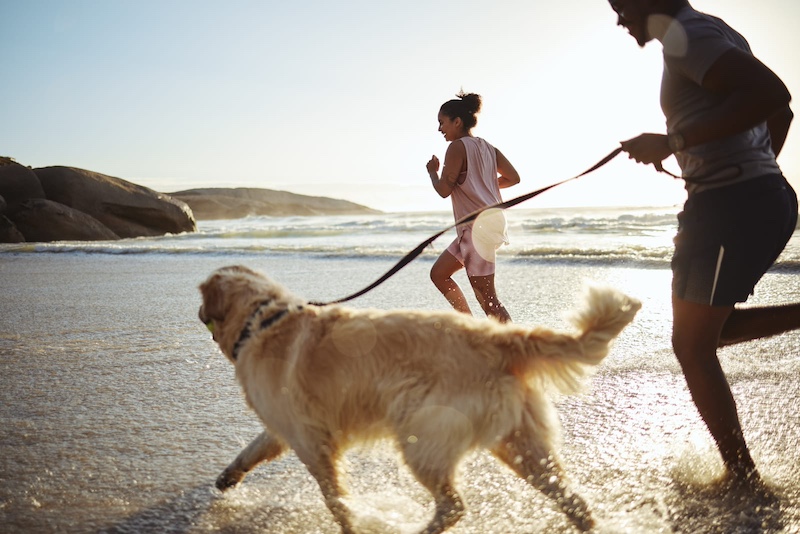
Regular exercise is crucial for a dog’s mental and physical health. Exercise helps to release pent-up energy and can reduce anxiety by producing endorphins, the body’s natural mood lifters. Tailor the exercise to your dog’s breed and age, whether it’s a daily walk, a game of fetch, or a more strenuous hike. A tired dog is a happy, relaxed dog.
4. Provide Mental Stimulation
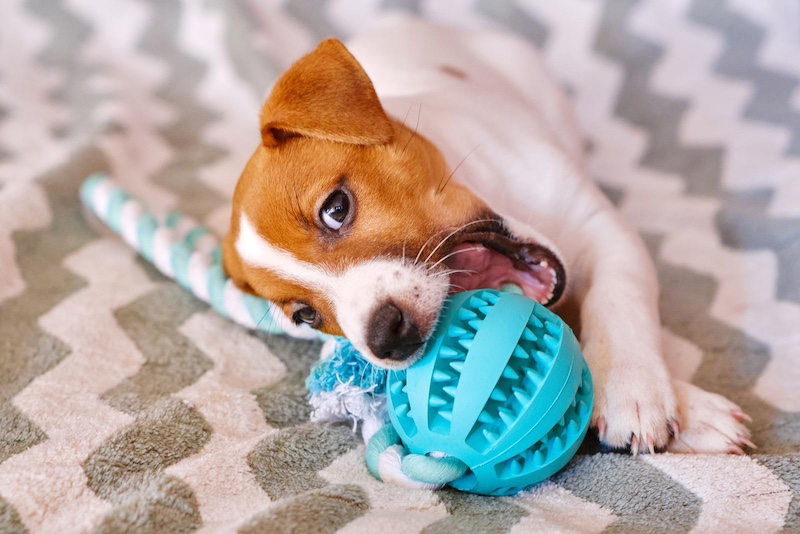
Mental stimulation is just as important as physical exercise for dogs, especially those prone to anxiety. Engage your dog in activities that challenge their mind, such as puzzle toys, interactive games, or training sessions. Mental engagement can distract your dog from anxiety and build their confidence.
5. Practice Positive Reinforcement
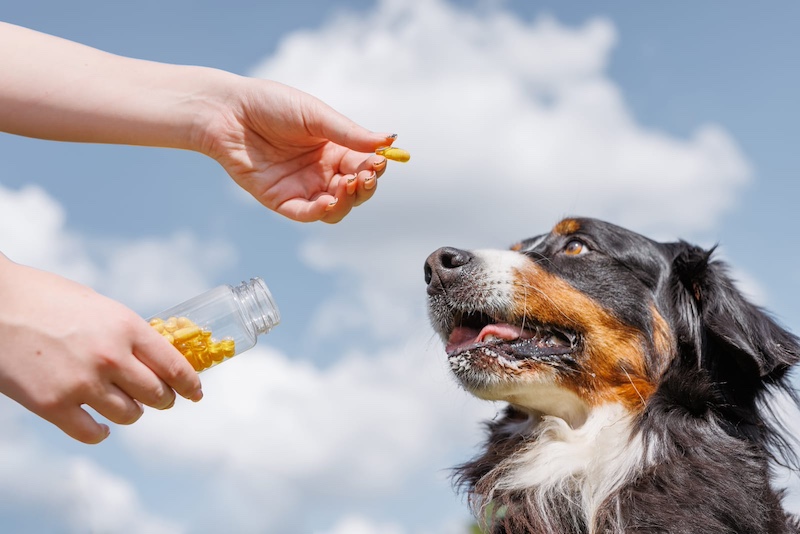
Positive reinforcement is a powerful tool in reducing anxiety. Reward your dog for calm behavior with treats, praise, or a favorite toy. This can help them associate relaxation with positive outcomes. Avoid punishing your dog for anxious behavior, as this can increase their stress levels and worsen the problem.
6. Try Calming Products

There are various products on the market designed to help dogs with anxiety. These include calming pheromone sprays, anxiety wraps like the Thundershirt, and natural supplements such as CBD oil or chamomile. Consult with your veterinarian before introducing any new products to ensure they’re safe and suitable for your dog.
7. Desensitize Your Dog
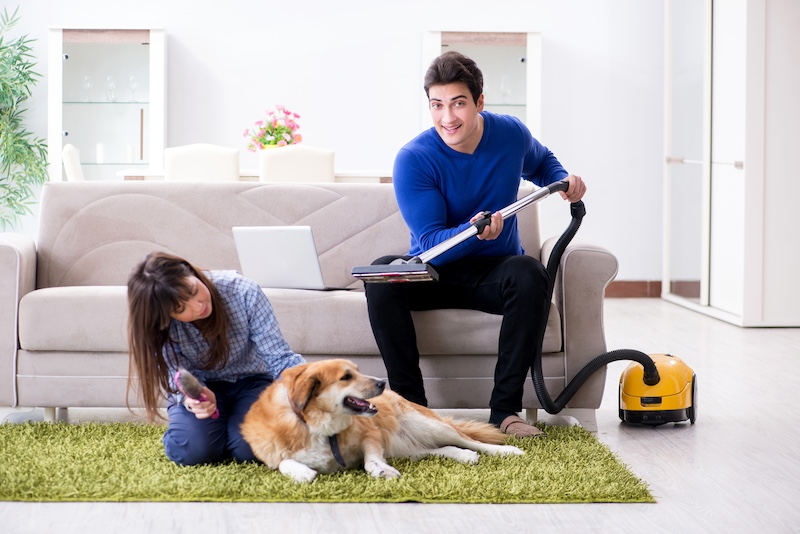
Desensitization involves gradually exposing your dog to the things that trigger their anxiety, starting at a low level that doesn’t provoke a reaction and gradually increasing the exposure. For example, if your dog is anxious about loud noises, start by playing recordings of the noise at a low volume while rewarding your dog for staying calm. Over time, your dog may become less reactive to the trigger.
8. Consider Professional Training

Sometimes, anxiety in dogs can be more severe and require professional intervention. A certified dog trainer or animal behaviorist can work with you and your dog to address specific anxiety issues. They can provide personalized strategies and training techniques to help your dog cope with their fears.
9. Use Relaxation Techniques
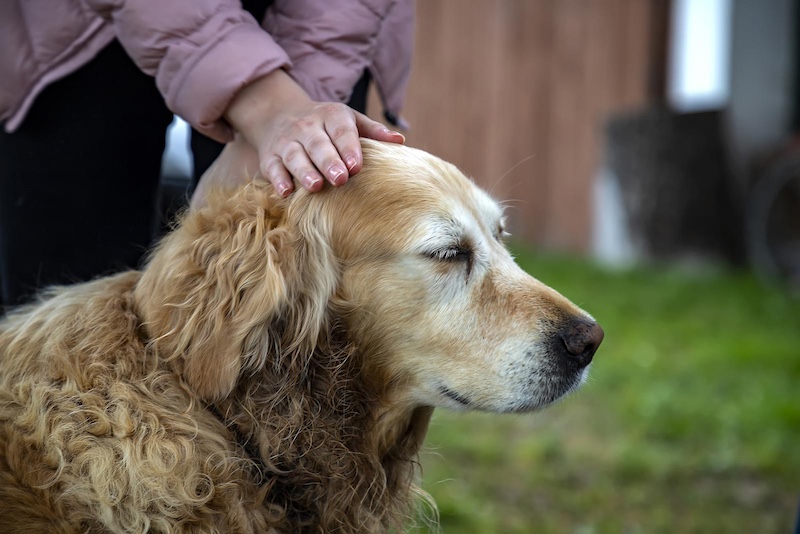
Teaching your dog relaxation techniques can help manage anxiety. One method is to train your dog to lie down on a mat or bed on command and reward them for staying calm in that position. Gradually introduce mild stressors while your dog is in this relaxed state and reward them for remaining calm. Over time, this can help your dog learn to relax even in stressful situations.
10. Be Patient and Understanding

Overcoming anxiety is a gradual process, and it’s important to be patient with your dog. Some dogs may take longer to respond to anxiety-reducing techniques than others. Celebrate small victories and continue to offer support and reassurance. Your calm and understanding presence can make a significant difference in helping your dog feel secure and relaxed. Please Note: This content was created with the assistance of AI and thoroughly edited by a human before publishing.

